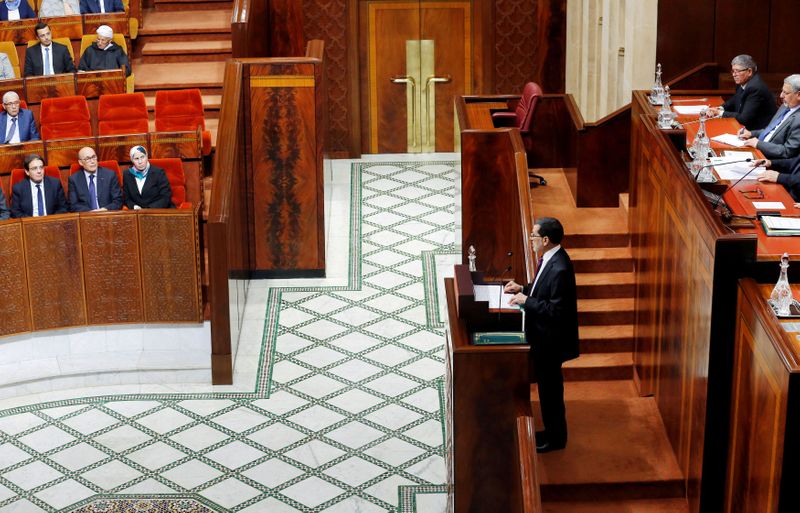By Ahmed Eljechtimi and Angus McDowall
RABAT (Reuters) - When Moroccans elect a new parliament next week, it is likely to be a body with even less influence than its recent predecessors thanks to a new voting law and gradual moves by the king to reassert his dominant role.
A decade after Arab Spring protests led King Mohammed VI to give more powers to the elected parliament and the government it helps form, he has brought most major decisions back within the palace walls.
"In Morocco we have a strong institution, the monarchy, that overshadows the rest of political players," said Mohammed Masbah, head of an independent Moroccan think-tank.
Morocco's development plans and big economic projects have been initiated by the monarch rather than government, and rather than letting the premier - drawn from the biggest parliamentary party - select key ministers, the palace has done so itself.
With the advent of the pandemic the monarchy has further consolidated its executive authority, taking control of most strategic decisions from vaccine procurement to economic relief.
Often, Prime Minister Saad Dine El Otmani seemed to be the last person to know about major initiatives - including the deal last year to bolster ties with Israel, something he had denied would happen.
Now, a new voting law pushed by an interior minister who was selected by the palace will make it harder for big parties to gain a lot of seats, meaning parliament will be more fragmented and any government that emerges even weaker than previously.
FRAGMENTED PARLIAMENT
Moroccans who hoped the Arab Spring reforms might lead to genuine electoral choices have been disappointed: the process of building coalitions and remaining in good odour with the palace have left most parties offering similar policies.
"In Morocco, the monarchy takes credit and the government takes the blame," said Masbah.
The PJD moderate Islamist party, which has won most seats in each election since 2011 and taken the lead in government formation, has arguably been the biggest political loser.
Caught between the palace's control of the biggest ministries and the need to share portfolios among coalition partners, it has had few cabinet posts. Meanwhile, parliament pushed through a law allowing cannabis cultivation against the position of the PJD.
The new voting law, which was also opposed by the PJD, will further reduce its influence by changing the way parliamentary seats are allocated, making it more difficult for parties to gain large numbers of seats.
"The electoral reforms... are likely to lead to the election of a highly fragmented parliament," said Amal Hamdan, an electoral systems analyst. That would likely weaken any government that emerged, further strengthening the monarchy, she said.
Had the law been applied in the 2016 election, the PJD would have had a quarter fewer seats and come second, said Abdelaziz Aftati, a senior PJD leader. Though election polls are banned, analysts expect the PJD to lose ground in the Sept. 8 vote.

The party believes it was drawn up specifically to cut its influence. However, despite being the biggest party in parliament and the leader of the coalition, it could not stop it being passed.
"We would will accept moving into opposition if it is the free will of the people expressed through fair elections. But not through undemocratic rules," said Aftati.